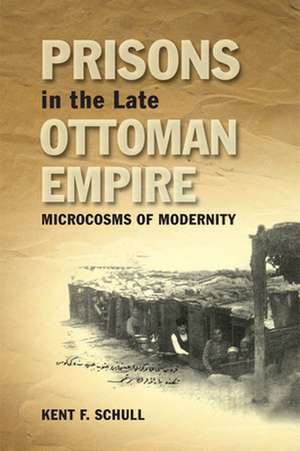Prisons in the Late Ottoman Empire
Autor Professor Kent Schullen Limba Engleză Hardback – 29 apr 2014 – vârsta de la 22 ani
Preț: 554.23 lei
Preț vechi: 676.88 lei
-18% Nou
Puncte Express: 831
Preț estimativ în valută:
106.05€ • 111.02$ • 87.75£
106.05€ • 111.02$ • 87.75£
Carte tipărită la comandă
Livrare economică 07-21 aprilie
Preluare comenzi: 021 569.72.76
Specificații
ISBN-13: 9780748641734
ISBN-10: 0748641734
Pagini: 226
Ilustrații: 6 black & white illustrations
Dimensiuni: 157 x 236 x 18 mm
Greutate: 0.57 kg
Editura: EDINBURGH UNIVERSITY PRESS
ISBN-10: 0748641734
Pagini: 226
Ilustrații: 6 black & white illustrations
Dimensiuni: 157 x 236 x 18 mm
Greutate: 0.57 kg
Editura: EDINBURGH UNIVERSITY PRESS













